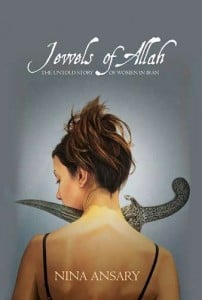I am not an Islamic scholar, therefore my opinions on Islam do not count. Worse still, I’m told that it’s not my place to have an opinion on Islam at all.
This is the general climate of thought in Malaysia put forth in the recent proposal by the country’s main Islamic party, PAS, to investigate the Muslim feminist non-governmental organization Sisters In Islam (SIS) for un-Islamic activities and to “rehabilitate” its members to “the right path”. The announcement has sent shock waves across the country.
The feminist organization has long been the thorn on many Muslim Malaysians’ sides, of both conservative and moderate persuasions, mainly for their outspoken critique of book-banning, polygamy, and state-imposed concepts of modesty. The latest in the string of attacks against SIS is by far the most extreme and is said by many to be a major political misstep for PAS, which once vowed to be “modern” and “democratic”.
But PAS has yet to retract their demands amidst growing pressure from many quarters, including criticisms from within party lines. But more importantly, it has yet to disclose further details of their charges against SIS. In the meantime, their contempt for Sisters In Islam touches on more personal issues that raises questions as to whether accusations against them are really from a theological standpoint; from the members’ choice of dress (many do not wear the hijab) and marital status (many are also unmarried). These claims to discredit SIS have been reactionary at best, intolerant and anti-women at worst.
Calls for SIS to drop “Islam” from their name cite the non-governmental organization’s lack of formal credentials to represent the religion and influence to mislead young minds. But who has the right to represent Islam? And really, do we need an authoritative body to speak for a community so complex and pluralistic, especially when ones that claim to do so have shown themselves, time and time again, to be petty and bigoted?
Being a Muslim feminist and a supporter of the organization, I have a different view: the “Islam” in SIS denotes the reclamation of certain rights from Islamic sources, by reading the Quran and hadiths from a gender-neutral perspective. It certainly is not about representing every Muslim man and woman in Malaysia as more “authoritative” voices would claim. Put simply, “Islam” in SIS is about women who live in an Islamic state, politically and spiritually.
Muslim feminists have long been targets of brutal attacks. Many have even lost their lives for promoting women’s rights: Turkish feminist writer Konca Kuris openly expressed her critical views on male domination in her society and paid with her life in 1998. Asma Jahangir, Nawal al-Sadaawi, and the women of RAWA, for example, have all received numerous death threats. The long list of Muslim activists can testify that what the women and men of SIS believe in are not freakish coincidences or “alien” to modern-day Islam.
But it is what they believe in that’s viewed as dangerous. So dangerous that a member of Malaysian parliament suggested that the organization should be investigated under the Shariah Criminal Offenses Enactments and the penal code, as if the members were criminal suspects. And so as it stands, the easiest and most cowardly way to containing that danger is by silencing them.
When religion is deeply entrenched in the country’s constitution and public policies, everyone has a right to talk about it, and particularly, to criticise its abuse. But the threat to express dissent hangs over every Malaysian like a foreboding black cloud. “Liberal” has become a dirty word in Malaysia, where it can mean anything from being Westernised and elitist, to simply being immoral.
To demonise organisations like SIS for being “liberal” for expressing non-mainstream opinions pertaining to Islam is more than just clichéd, it’s about bullying the usual “soft” targets like women and other marginalized communities into silent submission.














